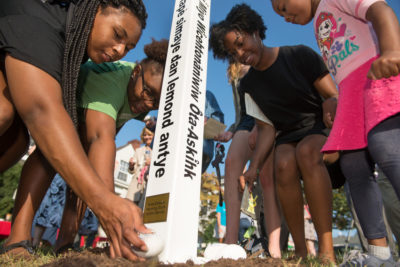A recent $5,000 Black Spirituality Grant from the Christian Church (Disciples of Christ) is supporting several events at the University of Lynchburg this fall.
In September, the grant — which the Spiritual Life Center received from the Black Disciples Endowment Fund — helped bring in the Rev. Pamela Lightsey for the annual Snidow Lecture. Lightsey is a queer womanist theologian whose scholarship centers on the liberation from racism, sexism, and classism.
The Office of Equity and Inclusion was able to invite Black Zen Buddhist Dr. Larry Ward, who trained under Zen master Thich Nhat Hanh. In a virtual Courageous Conversation on Oct. 5, Ward will speak with the campus community about how Buddhist teachings and practices can be used to heal from white supremacy and racial trauma.

University Chaplain Nathan Albert says he’s also used the funds to purchase both authors’ books for students, faculty, and staff, and he’s working on “group meetings for Black students to explore religion within the Black church, liberation theologies, traditional African religions, and ways to have a thriving spirituality on campus.”
Inviting such diverse spiritual groups and traditions to campus benefits everyone, he added. “For me, and I think many other people at our University, we’ve been spiritually formed by a dominant religious system that is primarily white,” Albert explained.
“If we only learn from and focus on this dominant religious system, we’ll never realize the expansive and diverse religious thought that is not only on our campus, but around the world. I think these events can center the Black religious experience, while also expanding our understanding of religion and spirituality.”
Albert said his own explorations outside the realm of white Christian theology have already made a profound impact on his life.
“I’ve been deeply formed by Black liberation theology, queer theology, and feminist and womanist theology,” he said. “It’s transformed my understanding of religion, the divine, social justice, and how to advocate and be an activist for others. I hope, too, that others on campus might be formed by such teachings so we can continue to be a diverse and equitable community committed to the well-being of each other.
“In some ways, bringing these speakers to campus is embodying and bringing to life these teachings that I’ve only read about.”

